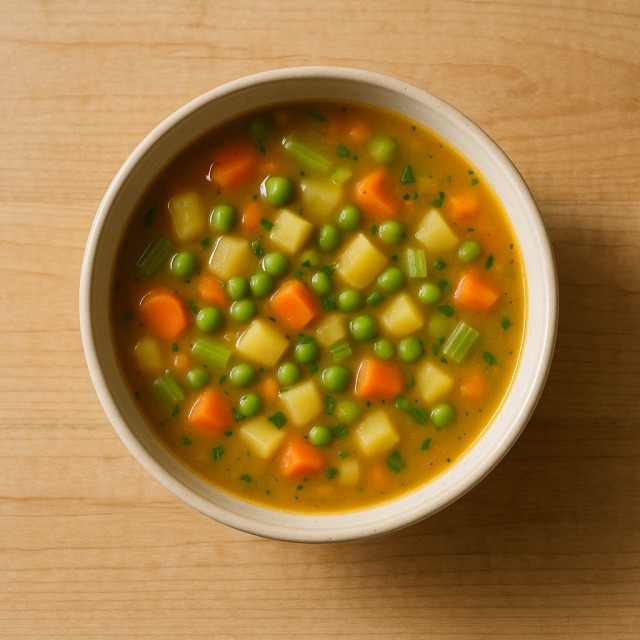Calorie Chart / Vegetables / Carrot
How Many Calories Are in Carrot?
Calculation of the nutritional value & Recommended Dietary Intake of carrot
For g and a calorie requirement of kcal
| Calories 64 kcal | Proteins 1.4 g | Lipids 0.2 g | Carbohydrates 14 g |
| 3% | 2% | 0% | 5% |
Health benefits of carrot

Carrot - 100g
Calories 32 kcal
Proteins 0.7 g
Lipids 0.1 g
Carbohydrates 7 g
Classified as a low-calorie vegetable, the carrot supplies very few calories while providing a remarkable concentration of micronutrients. It is particularly rich in beta-carotene (pro-vitamin A), which supports normal vision and immune function. One serving already covers a large share of daily vitamin A needs without adding many calories to the plate.
Carrots also contribute vitamin K, vitamin B6, and potassium, nutrients involved in blood coagulation, energy metabolism, and electrolyte balance. Their bright orange colour signals the presence of antioxidants such as lutein and zeaxanthin: these compounds are studied for supposed protective effects against oxidative stress, again with minimal impact on total calories.
Dietary fibre (mainly pectin) promotes satiety, making it easier to respect a calorie target, whether the goal is weight loss or weight maintenance. Because carrots are low in fat and protein, they can lighten meals that are otherwise higher in calories and help distribute calories more evenly throughout the day.
Historically, the modern sweet orange carrot appeared in the Netherlands in the 17th century and quickly became popular precisely because it brought flavour, colour, and nutrients at negligible calories compared with many staple foods of the time.
Tips for incorporating carrot into a balanced diet
Thanks to their discreet calories, carrots fit into almost any balanced diet. Raw sticks are an easy snack: combine them with a tablespoon of yogurt sauce instead of a richer dip to keep calories under control yet obtain extra protein.
For a comforting main dish, simmer a carrot & ginger soup alongside florets of broccoli; the vegetables add volume without excessive calories, and a swirl of light crème fraîche finishes the bowl while still moderating calories.
Roast carrots in the oven with a drizzle of olive oil and serve them beside a grilled chicken breast and a scoop of brown rice. The lean protein and complex carbohydrates round out the meal, and the carrots' sweetness eliminates the need for sugary sauces, again saving calories.
If you crave something exotic without blowing up calories, try a lentil-carrot dhal: sauté diced carrots, stir in lentils, tomato, cumin, and turmeric, then simmer until tender. This plant-based dish delivers fibre and protein for only moderate calories and pairs well with a fresh cucumber salad.
Frequently Asked Questions
- How many calories are in carrots?
- Carrots provide 32 kcal per 100 g.
- Are carrots good for weight-loss diets?
- Yes. Because carrots are low in calories yet rich in fibre and micronutrients, they add volume and flavour to meals without significantly increasing total calories, helping you feel full while respecting an energy deficit.
- Do cooked carrots have more calories than raw ones?
- The macronutrient composition—and therefore the calories—of a carrot hardly changes with normal home cooking. However, water loss concentrates nutrients slightly, so 100 g of cooked carrot may contain a few more calories than the same weight raw, but the difference is marginal.
- Can eating carrots raise blood sugar despite the low calories?
- Carrots do contain naturally occurring sugars, yet the overall carbohydrate load is modest and the glycaemic index is moderate. When eaten in reasonable portions, carrots contribute few calories and have a limited impact on blood glucose levels.
- How many carrots can I eat per day without exceeding my calorie budget?
- At 32 kcal per 100 g, even 300 g of carrots supply only about 100 calories. Most calorie-controlled plans can easily accommodate that amount, provided dressings or added fats are kept in check.
Similar foods
Information provided by Calorie Menu may contain inaccuracies or errors. It cannot, under any circumstances, substitute medical advice or medication.










